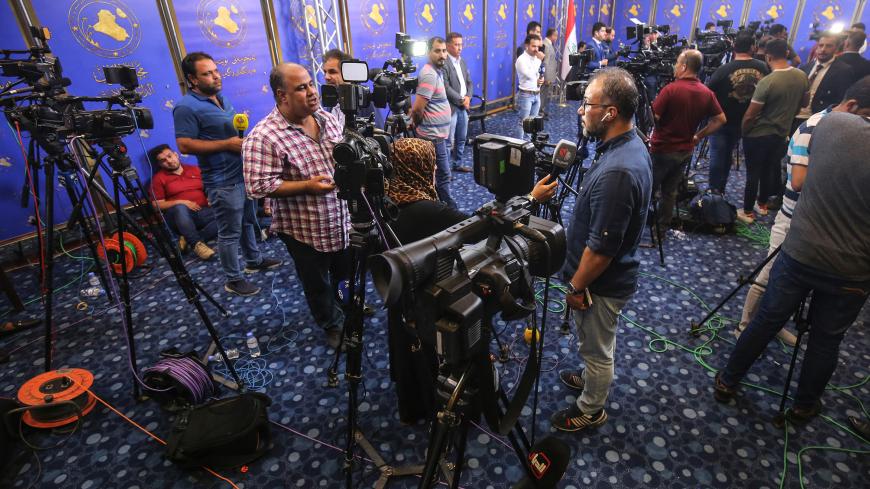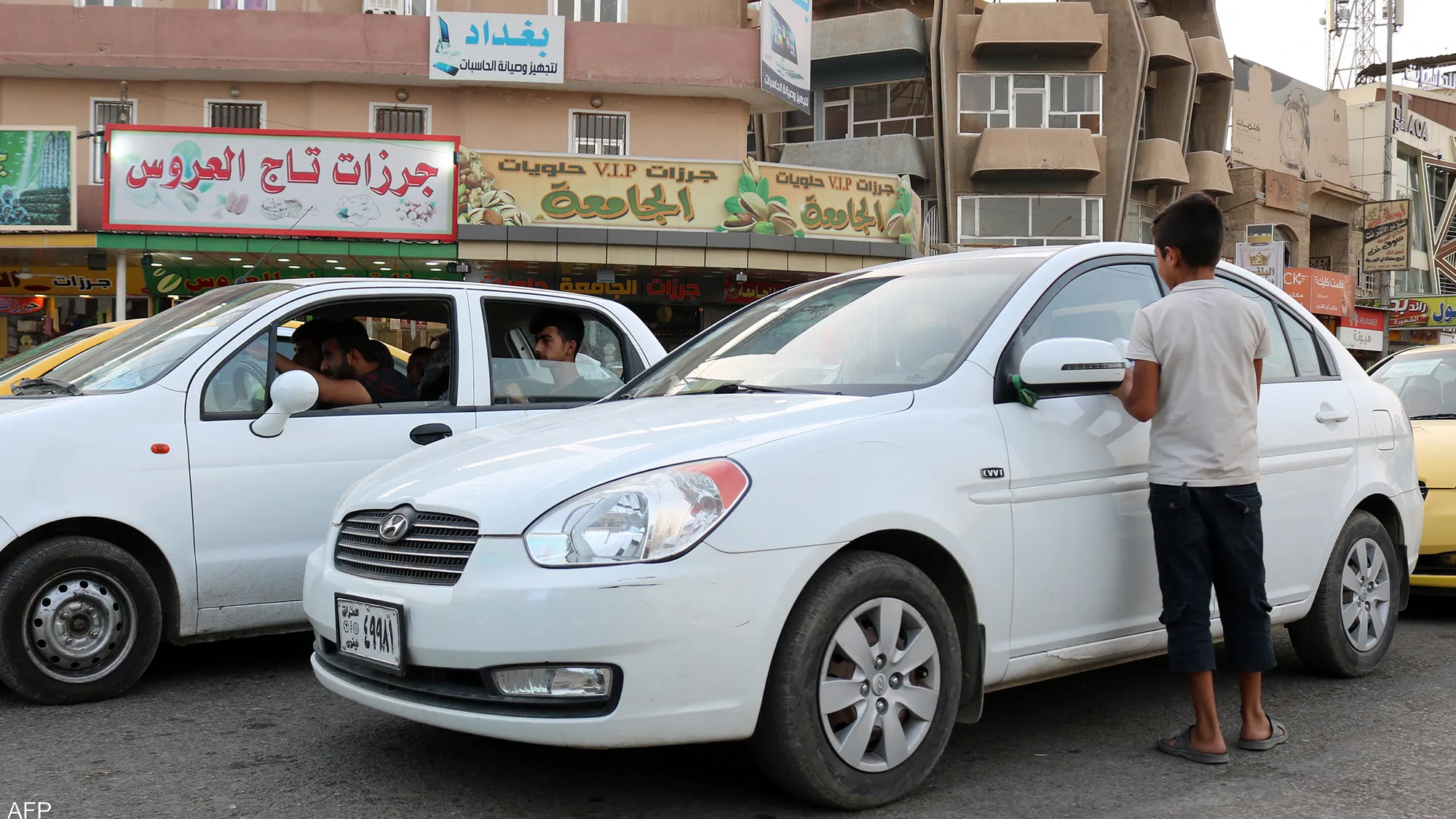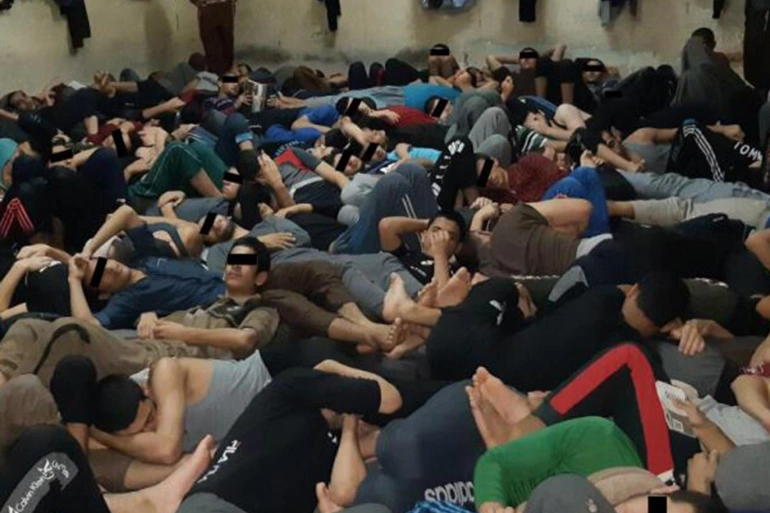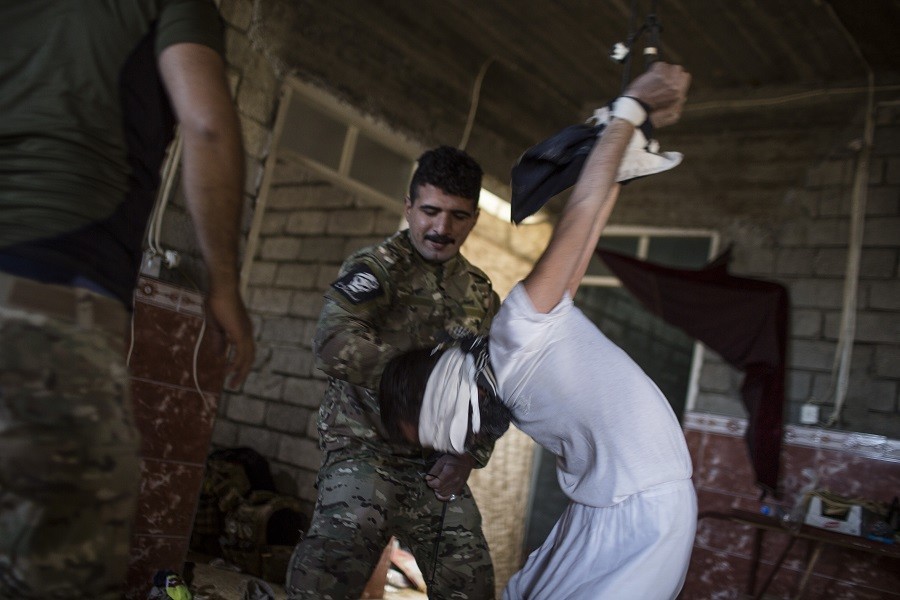The Iraqi Observatory for Human Rights said that the attacks against journalists have not ended yet, despite the existence of government promises to limit them and hold those responsible for previous violations. This is a big risk for journalists.
"Governments that came after 2003 did not succeed in providing journalists with the necessary protection, on the contrary, it was those who committed these abuses against them and often helped to replicate them as a result of impunity," the observatory said.
On April 7, a force from the Baghdad Operations Command used the NRT crew in Baghdad when a group of Iraqi army personnel stopped a morning program by journalist HASSAN NABIL.
HASSAN NABIL told the Iraqi Observatory for Human Rights: "I was providing the program legally according to the official permits, but a group of soldiers cut off the broadcast, prevented me from completing the program and continued my demand to stop broadcasting the program, but I insisted on returning to broadcast.
"After communicating with the Baghdad Operations Command and explaining the situation and showing all the official permits for the work, I was able to return, there are those who deal with us with temperament and personal desires that have nothing to do with security or military work," he said.
On March 10, a security force in Salahuddin province detained the correspondent of Al-Najba TV channel MOHAMMED AL-OBEIDI. Before the detention, he was severely beaten by a force from the military threshold.
"He was severely beaten and severely beaten by some members of the military ALATTABAH because he was filming one of his reports there," AL-OBEIDI told the Iraqi Human Rights Watch.
The Iraqi Observatory for Human Rights said that "the local government in the province of Salah al-Din did not conduct any investigation to hold the perpetrators and did not show any position against the attack, which has long been a reporter".
On March 5, a police officer in Babil province assaulted the cameraman of the Samarra satellite channel AHMAD AL-AJILI, who was filmed in the market of the solution (the governorate centre) after he withdrew his identity and insulted him before he prevented him from filming.
AHMED AL-AJILI told the Iraqi Observatory for Human Rights "The policeman broke my camera and took me with the staff to the police station as if we were accused or criminals and dealt with us in a bad way and assaulted us also by speaking all our guilt that we were witnessing the suffering of the people".
The Iraqi Observatory for Human Rights said "Such behaviour and temperament by some elements of security, confirm that no training obtained by these and education is related to how to deal with media cadres".
On February 27, a sports team attacked the DIJLAH crew during an incident in the province, causing crew equipment to be broken and some injured.
A member of the monitoring network at the Iraqi Observatory for Human Rights in Najaf said that "the team of the centre oil attacked the correspondent of the channel Tigris satellite AHMED AL-GHAZALI and photographer accompanied by WALEED insulting insults".
On February 6, a correspondent for the Baladi channel in Nineveh province was injured while escorted by the Iraqi army, which clashed with the ISIS organization south of the city of Mosul.
The Iraqi Observatory for Human Rights said that attacks on journalists are increasing every year and at the same time Iraqi governments have not put in their programs any plans to help journalists secure their lives and ensure their media coverage is not contrary to the law.
"These attacks indicate that there is a great government neglect to protect journalists and to hold accountable individuals and groups whose rights are violated and the government must recognize the important role of the media in promoting the values of democracy in the country," the observatory said.




